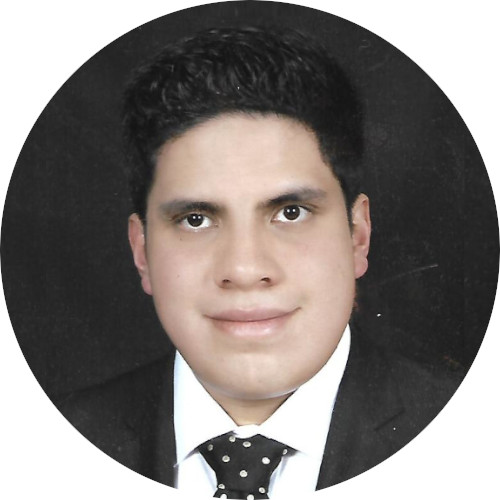A unique feature of PEDro is that trials are independently assessed for quality using the PEDro scale. The total PEDro score can range from 0 to 10, with higher scores indicating better quality. These quality ratings are used to quickly guide users to trials that are more likely to be valid and to contain enough data to guide practice. You will see these ratings when you perform a PEDro search or open a PEDro Evidence in your inbox feed. In the Search Results page, trials are sorted using the total PEDro score – this means that trials with the highest scores are at the top of the list. In the Evidence in your inbox feeds, we exclude trials that score less than 5/10 and sort the remaining trials using the total PEDro score.
To make the total PEDro scores as robust as possible, each trial in PEDro is independently evaluated by two raters. If these raters disagree on any PEDro scale items, a third rater adjudicates. We currently have a team of over 100 volunteers who assist with this huge task of rating all the trials in PEDro.
We asked six of our raters to share their thoughts on what they have learnt by participating as PEDro volunteers.

Dr Fereshteh Pourkazemi (Senior Lecturer, Discipline of Physiotherapy, The University of Sydney, Australia) has been a PEDro rater since 2011, initially in a paid position while she was undertaking her doctoral studies then, more recently, as a volunteer. She has rated 1,297 trials. Fereshteh says: “This is a great opportunity to learn about the most recent evidence in your field, and to develop a greater understanding of high-quality research. If you are a researcher, the skills you gain help you with communicating your own research findings clearly. If you are a clinician, becoming a rater helps you develop a critical lens to quickly identify good research. I also enjoy reading research published in my first language, Persian.”

Dr Stephen Chan is a clinician-researcher based in Hong Kong who has rated 53 trials written in English or Chinese. His advice is: “I highly recommend becoming a volunteer PEDro rater. Some physiotherapists may hesitate because they think the time commitment may be too great. In my experience, this is not the case. It takes about 10 to 15 minutes to rate each article. As you know, many trials are published every year. It is difficult for a clinician to read all the relevant articles in a busy work schedule. The most precious reward in my volunteering journey was to train up my critical appraisal skills and learn how to grasp the main points from an article quickly.”

Associate Professor Mykola Romanyshyn has rated 139 trials written in English, Polish, Ukrainian or Russian. He is both an academic (National University of Ukraine on Physical Education and Sport and Ukrainian Catholic University, Ukraine) and senior clinician (Kyiv Regional Clinical Hospital, Ukraine). Mykola shared: “This is a great opportunity to deepen your knowledge of evidence-based practice and develop skills in critical analysis of scientific articles. Being a PEDro rater has significantly influenced my clinical activities.” Mykola has inspired the members of the Neurological subgroup of the Ukrainian Association for Physical Therapy to get involved with PEDro. Together they have produced the Ukrainian translation of the PEDro website.

Carlos Maximiliano Sánchez Medina started his involvement with PEDro as a visiting intern in 2018. Since then he has rated 139 trials written in English or Spanish. Carlos now works as a clinician-researcher in the Physiotherapy Research Unit of National Autonomous University of Mexico (Mexico). Carlos says: “I recommend becoming a volunteer PEDro rater because it is an opportunity to facilitate evidence-based practice for physiotherapists around the world. I learnt how to use the PEDro scale and I improved my ability to critically appraise the scientific literature. I enjoy being a PEDro rater because I feel that I can contribute to improving the quality of physiotherapy.”

Assistant Professor Gul Oznur Karabicak (Adnan Menderes University Faculty of Health Sciences, Turkey) has rated 124 trials written in English or Turkish. She shared: “In working life, it is not easy to devote time to reading on topics outside your field of study. Being a PEDro rater gives me this opportunity. Reading a variety of articles outside of my field improves my creativity in my work area. You get to meet new researchers and discover new ideas. Additionally, I am so pleased to feel that I am helping to improve PEDro.”

Robyn Porep has rated 291 trials for PEDro since 2012. She is a rehabilitation physiotherapist at Baringa Private Hospital (Australia) who has volunteered extensively for Mercy Ships Australia, a charity providing essential medical care in West Africa. Robyn reflects: “The wide range of topics fascinates me. Just in the last few months, I have read about nerve flossing, taping, vibration on trigger points, exercise for cancer patients, low-level laser treatment and adhesive capsulitis of the shoulder following a pacemaker implant. Volunteering for PEDro lets me give back something to the profession that I have belonged to and loved for the past 40 years. Physiotherapy is a great career and I want it to stay professional and dependable for our patients and those physiotherapists coming after me. For that to happen we need evidence-based practice.”
PEDro is always looking for volunteers to help us locate and rate trials. To become a volunteer rater, you need to complete the PEDro scale training program, available online. If you think you might like to assist in this way, please contact us. You can be a volunteer from anywhere in the world.
We are particularly looking for bilingual physiotherapists who could help us rate trials that are written in Chinese, Danish, Finnish, Persian, Serbian, Slovak, Hebrew and Greek.



